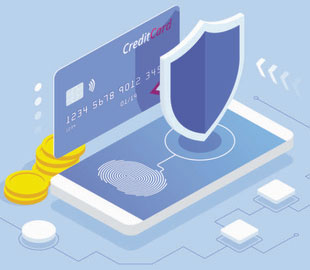A digital wallet, sometimes referred to as an e-wallet, is a payment method which allows you to make electronic transactions in store or online. Wallets are stored on your smartphone or device and unlock a whole world of functionality, including a history of transactions and the ability to store loyalty cards and discounts, boarding or transit passes and event tickets.
In European markets, digital wallets are almost entirely powered by transactions made with payment cards through traditional scheme or card brand acceptance networks, like Visa and Mastercard. These are Card Based Wallets.
Across the rest of the world, particularly where consumers may not have a bank account but do own a smartphone, wallets have been developed outside of the payment scheme-built ecosystems, with transactions funded directly from a bank account, by cash or by bulk disbursement. These are Stored Value Wallets.
There are four main different types of digital wallets.
1. Closed wallet
A closed wallet is usually created by a single business selling products and services directly to customers. Users can store funds to make transactions only with the issuer of the wallet. Any money from cancellations, returns, or refunds is returned to the wallet. A good example of this is Amazon Pay.
2. Semi-closed wallet
These wallets allow users to make transactions at participating businesses and locations. Although the places you can use them is restricted, you can usually make purchases online and offline. Businesses need to enter into agreement with the wallet issuer in order to accept this type of payment. In India, Paytm is a popular semi-closed wallet with over 450 million registered users3.
3. Open wallet
These are the best-known type of digital wallet, enabling users to manage and keep track of payments online. They’re built as easy-to-use online web applications that can be downloaded onto any device or browser with an internet connection.
An open wallet is compatible across platforms, enabling the user to access their transactions anytime from anywhere in the world. Usually, open wallets are issued by banks or institutions partnered with banks and they access funds directly through a bank account or a payment card – think Apple Pay and Google Pay.
4. Crypto wallets
Crypto wallets are uniquely used to store your cryptocurrency passwords in one place. Unlike digital wallets, they don’t actually hold any currency, but instead give you the tools to access and manage all your currencies, send and receive money and even shop at stores that accept crypto. While many crypto wallets are digital, some come as a piece of physical hardware, similar to a USB stick.






-news.jpg)


